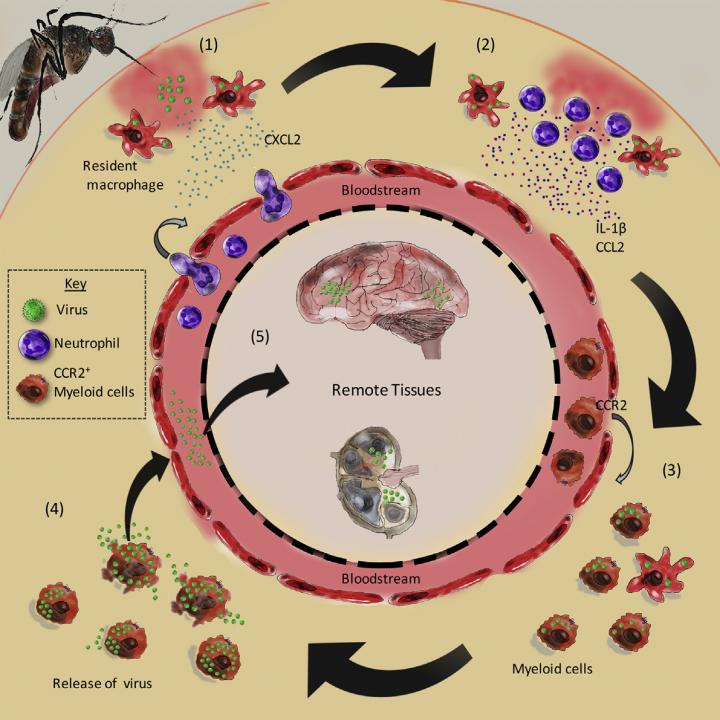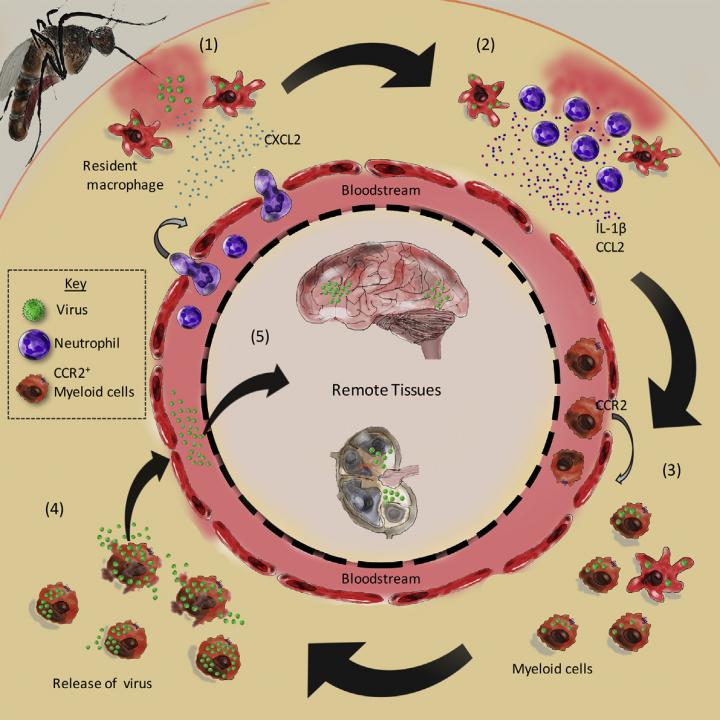
The itchy, red welts that appear after being bitten by a mosquito may help any viruses the insect is carrying pass on to a new host. A mouse study published June 21 in Immunity suggests that the swelling and irritation that make mosquito bites so unpleasant may provide a mechanism by which viruses like Zika are able to replicate and spread.
"Before we did this study, little was known about the events and processes that occur at mosquito bite sites," says Clive McKimmie, a Research Fellow at the University of Leeds and the paper's senior author. "Our findings suggest that the inflammatory response at these sites helps viruses to replicate, enhancing their ability to cause disease."
In the new research, the investigators used mouse models to study the bites of the Aedes aegypti mosquito, the species that spreads infections such as Zika, dengue, and chikungunya.
When a mosquito bites, it injects saliva into the skin. The saliva triggers an immune response, in which white blood cells called neutrophils and myeloid cells rush to the site. In this study, the team injected mice with viruses into the skin with or without the presence of a mosquito bite at the injection site and compared the reaction. They found that instead of helping, some of these immune cells get infected and inadvertently replicate virus.
In the absence of mosquito bites and their accompanying inflammation, the viruses failed to replicate well. But the presence of mosquito bites at the infection site resulted in an order of magnitude higher levels of virus. Further studies showed that the influx of white blood cells was required for enhanced replication of the viruses.
According to McKimmie, previous studies that have used in vivo models to study the course of mosquito-borne infections haven't looked at the bite as a necessary component. "We think the bite itself is affecting the systemic course and clinical outcome of the infection," he says. "If you want an in vivo model that replicates the most relevant parts of infection, you should include this inflammatory aspect."
"This was a big surprise we didn't expect," he adds. "These viruses are not known for infecting immune cells. And sure enough, when we stopped these immune cells from coming in, the bite did not enhance the infection anymore."
Although this research is still early work done in mice, McKimmie says the finding suggests new approaches for combating viruses that lead to health problems in humans. "We're quite keen to see if using topical creams to suppress bite inflammation will enable you to stop a virus from making someone as sick as it otherwise would do," he says.
He notes that if it's proven effective, this approach could work against future virus outbreaks that we don't know about yet. "Nobody expected Zika, and before that nobody expected chikungunya," he says. "There are estimated to be hundreds of other mosquito-borne viruses out there and it's hard to predict what's going to start the next outbreak."
###
This research was supported by the UK Medical Research Council and the UK Biotechnology and Biological Sciences Research Council.
Immunity, Pingen et al: "Host inflammatory response to mosquito bites enhances severity of arbovirus infection." http://www.cell.com/immunity/fulltext/S1074-7613(16)30205-9
Immunity (@ImmunityCP), published by Cell Press, is a monthly journal that reports the most important advances in immunology research. Topics include: immune cell development and senescence, signal transduction, gene regulation, innate and adaptive immunity, autoimmunity, infectious disease, allergy and asthma, transplantation, and tumor immunology. Visit http://www.cell.com/immunity. To receive Cell Press media alerts, contact [email protected]
Media Contact
Joseph Caputo
[email protected]
617-397-2802
@CellPressNews
http://www.cellpress.com





